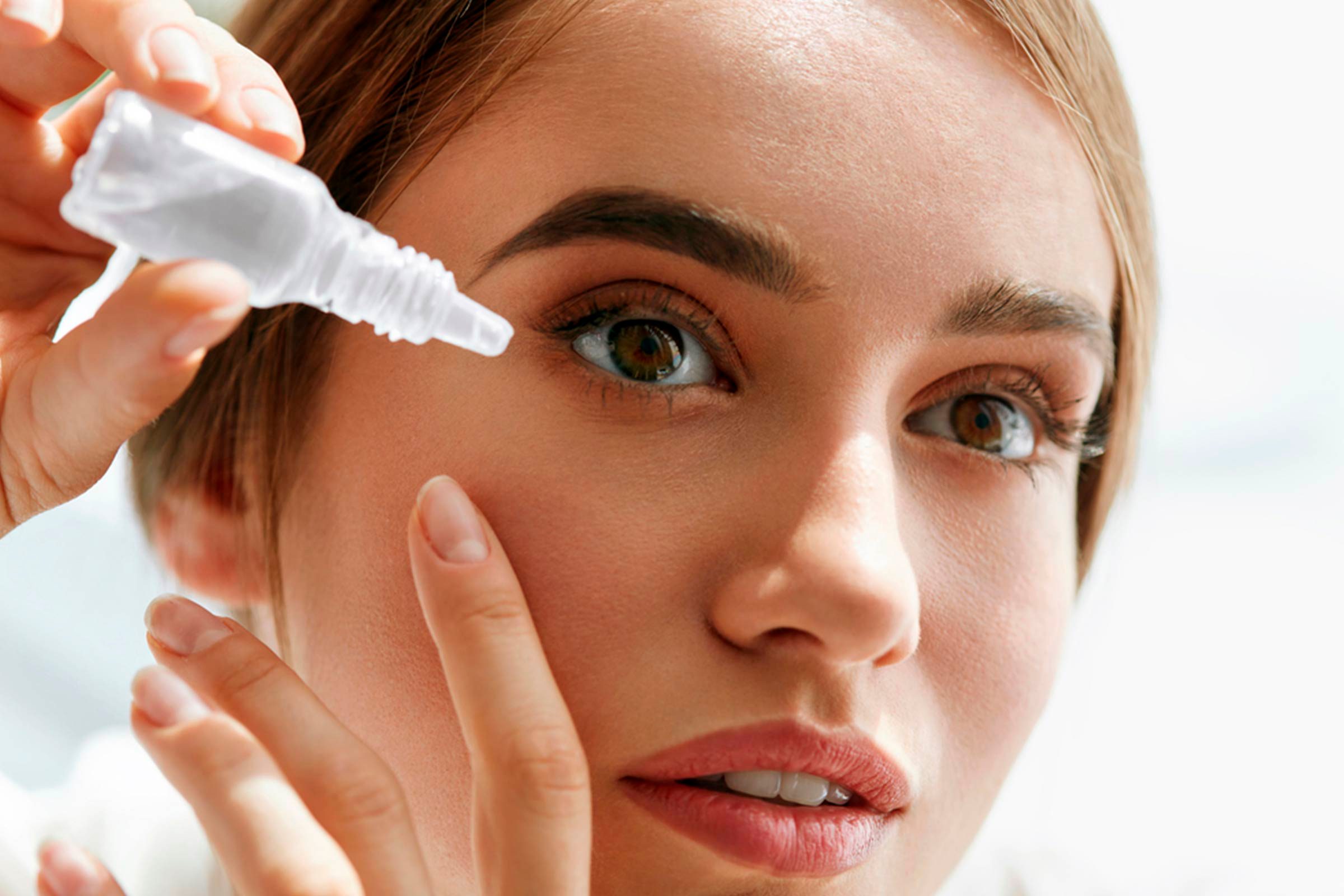Ways To Improve Eyesight: Factors That Helps To Improve Vision
Have you ever thought about what are different ways to improve eyesight? Protecting your eyesight is crucial to living a happy and healthy life. Poor eyesight may make even the most basic activities, like reading or working, difficult, or even impossible.
There are methods of correcting poor eyesight that doesn’t include wearing glasses or undergoing surgery.
Vision problems including nearsightedness, farsightedness, and astigmatism cannot be cured with natural therapies. However, maintaining a healthy lifestyle, including regular exercise and a more nutritious diet, may benefit one’s eye health and vision.
After the age of 40, the majority of individuals have vision problems, which become most noticeable while reading or using a computer. One of the most frequent visual problems is presbyopia, or difficulty seeing close-up things.
Regular eye exams and the use of corrective lenses for vision impairments or impairments may help preserve or restore eye health and visual acuity.
One of the best methods to protect your eyesight from damage and enhance your vision is to have regular eye exams. If you want to understand more about how you may enhance your eyesight, read on.
Your eyes are among your most prized belongings, but it’s likely that you take them for granted. Here are 10 good routines to get into that can help you keep your eyes healthy.
How To Improve Your Vision
The quality of your vision mostly depends on your age. Having trouble seeing clearly is a common symptom of ageing, according to the data.
Even while you can’t stop the hands of time, there are certain things you can do to keep your eyes from deteriorating too quickly.
There is a lot you can do to take care of your eyes and see better on your own, in addition to regular visits to the eye doctor.
It is possible to delay age-related vision loss by taking precautions like eating healthily, limiting your screen time, giving up tobacco, and wearing protective eyewear.
Blueberries: Good For Your Eyes
Make a healthy and filling breakfast by combining one cup of blueberries with one cup of yoghurt. Age-related macular degeneration (ARMD) is the leading cause of blindness in people aged 65 and older; a study published in The Archives of Ophthalmology found that women and men who ate the most fruit were the least likely to develop ARMD. Blueberries are one of the richest fruit forms of antioxidants.
Stealth-Incorporate Spinach
Eat spinach at least twice every week. Spinach quiche, spinach boiled in water, or Tuscan spinach sautéed in olive oil, garlic, and raisins are all possibilities. In any case, don’t forget to eat your spinach.

Scientists believe that the vitamin lutein, which is found in high concentrations in spinach, may protect against cataracts and age-related macular degeneration. For optimal absorption, take lutein with fat (olive oil is fantastic for this).
Observe Safe Driving Procedures
The air vents in your automobile should be directed toward your feet, not your face. Air conditioning may be quite drying, especially to the eyes. Place the car’s vents out of the line of sight, or use sunglasses, to avoid getting air blown in your eyes. In extreme cases, untreated dry eye may cause corneal abrasions and possibly blindness.
Check Your Checker
Reduce the height of the monitor to a comfortable level for your eyes. Dr. John Sheppard, director of the ophthalmology residency programme at Eastern Virginia Medical School in Norfolk, explains that gazing at a computer causes you to unconsciously shut your eyelids, reducing fluid evaporation and the likelihood of developing dry eye syndrome.
Enjoy A Fish Feast
Try to include fish into your diet at least twice a week. According to the Harvard research, the risk of developing dry eye syndrome was greatest among the 32,470 women whose diets were assessed. These women had the lowest intakes of fish and, therefore, omega-3 fatty acids. You can’t find a healthier fish than this one.
Keep Your Cool
Reduce the temperature within your home. Dry air from the heat irritates your eyes. The winter months may be dry, so you may want to increase the humidity in your main living space by using a humidifier or by grouping together many potted plants.
Draw The Blinds And Hide
Always have on your sunglasses when you go outside. Researchers in the Chesapeake Bay area looked at the link between sun exposure and cataracts and age-related macular degeneration, and they discovered that fishermen who used eye protection were far less likely to acquire these disorders than those who went bare-eyed.

Dr. Omar recommends that you always keep the sunglasses on, regardless of the weather. To counteract the irritating effects of dry air, use these goggles.
Put On A Cap With A Wide Brim
Put on some shades and a hat with a wide brim. The amount of UV rays that may reach your eyes from above or around your glasses is greatly reduced, and the amount that can be blocked by a wide-brimmed hat or cap is nearly half.
Consume Excessive Amounts Of Beets
As an eye-healthy side dish, try roasting some fresh beets. There are phytochemicals in beets called anthocyanins, which give the vegetable its characteristic deep red colour and have been shown to protect the body’s tiny blood vessels from damage, including the eyes’. (Explore more about beets’ unexpected positive effects on your health.)
Treat Yourself To A Day At The Spa
Sniff some jasmine, peppermint, or vanilla essential oil dabbed on your arm. Scent expert Alan R. Hirsch, M.D., of the Chicago-based Smell and Taste Treatment Research Foundation, claims that jasmine stimulates the production of beta waves in the frontal lobes of the brain, so enhancing alertness, attention, and clarity of perception.
A person’s ability to perceive in low light is enhanced by all three aromas because they all activate the brain’s limbic system.
In addition to learning how to enhance your vision, you should also get familiar with the symptoms of cataracts.
Role Of A Healthy Lifestyle
It’s not uncommon to have vision problems. One in four Americans over the age of 40 suffers from some kind of visual impairment. It’s estimated that 6.8% of children under the age of 18 have some kind of visual impairment.
You may be keen to find out how to quickly and easily enhance your vision. It’s typically not an easy or fast treatment. However, if you adopt a more healthful lifestyle, you may be able to solve some of your eye issues without much effort.
Ocular illnesses including AMD, glaucoma, and diabetic retinopathy are less common in those who have improved their cardiovascular health with a heart-healthy diet and exercise.
Ways To Improve Eyesight: Factors That Help To Improve Vision
Maintain A Balanced And Nutritious Diet.
Glaucoma is a degenerative eye disease that may cause blindness if not treated promptly.
Antioxidants in some vitamins and minerals have been shown to halt the development of age-related macular degeneration. Among them are:
- Prolonged exposure to vitamin A
- Tocopherol, or Vitamin C
- E Vitamin and Zinc
The eyes need to know, what fruit helps keep them healthy?
Antioxidants (such vitamin C) may be beneficial to eye health, and many fruits and vegetables are rich in these elements. Berries, kiwis, oranges, and grapefruit are just a few examples of vitamin C-rich foods.
Green leafy vegetables and eggs are great sources of the minerals lutein and zeaxanthin. They may lessen the likelihood of developing cataracts or macular degeneration.
The retina of the eye and visual development both rely heavily on omega-3 fatty acids.
These essential elements may be found in everyday foods:
- Walnuts, cold-water salmon, and flaxseed oil are all good sources of omega-3 fatty acids.
- Foods rich in zinc include oysters and beef.
- Cantaloupe, carrot, mango, and sweet potato are all good sources of vitamin A.
- Citrus fruits, greens, and oranges all contain vitamin C.
- Nuts, seeds, and peanut butter are all good sources of vitamin E.
- Guidelines for a Balanced Diet
Consistently Engage In Physical Activity
Exercising on a regular basis is beneficial for everyone’s health, but especially for the eyes. The risk of developing glaucoma is reduced by 25% in persons who regularly participate in moderate exercise, according to one research.
Lack of exercise and weight increase are both risk factors for health problems that may have serious consequences for your eyes. Diabetics are at increased risk for complications, including blindness, due to a number of factors, one of which is diabetic retinopathy.

People who are overweight are at a higher risk of developing Type 2 diabetes. Diabetics should get dilated eye exams annually, or more often if their doctor recommends it. The chance of developing cataracts is increased two- to fivefold, and the risk of developing open-angle glaucoma is increased by a factor of two.
Increase your level of physical activity and safeguard your eyes by doing the following:
- Walks, on a regular basis,
- Cycle tours
- Moderate home exercise
- Preventing Obesity
Controlling Medical Issues
The health of your eyes may be affected by a number of illnesses that are chronic. Ask your doctor about the full range of symptoms you might expect from your chronic disease.
Among the most frequent threats to healthy eyesight are:
Diabetic retinopathy, which may result from uncontrolled diabetes, can lead to visual loss or blindness. Manage your diabetes and prevent eyesight loss by engaging in regular physical exercise and eating a diabetic-friendly diet.
Hypertensive retinopathy is a kind of blood vessel damage that may lead to impaired vision or even blindness in people with hypertension (high blood pressure). It is possible to prevent these problems with your eyes by maintaining healthy blood pressure.
Additionally, some long-term disorders that might impair your eyesight are:
- Asthma and high cholesterol
- Cancer
- Depression
- Older folks who have trouble seeing are likely to suffer from more chronic health problems than their peers who have good eyesight.
If you have any changes in your vision, particularly if you have a chronic illness associated with eye difficulties, you should make an appointment with your eye doctor and primary healthcare provider as soon as possible.
Go Get Your Eyes Checked
Visit an eye doctor, such as an optometrist or ophthalmologist, for an evaluation if you notice a slow but steady decline in your eyesight. If there is anything more severe going on, they can diagnose it.
You should talk to your eye doctor about any questions you have or changes in your vision that you’ve noticed. Questions your doctor could ask include the following.
- Can you read the fine print in a book?
- Do you feel any pain in your eyes?
- Do you seem to be experiencing the symptoms of pink eye (conjunctivitis)?
- A baseline eye exam is recommended for adults at age 40, and subsequent exams every two to four years up to age 54, even if they have no known risk factors for eye illness. The recommended frequency of eye exams for those aged 55 to 64 without risk factors for eye disease is once every one to three years.
Get to the hospital right away if you experience:
- The vision suddenly becomes hazy
- See double
- Reduced visibility
- The impairment of side vision
- Red eyes
- Pustules, discharge, or other discharges in or around the eye
Wear Eye Protection
Take all necessary precautions to avoid damaging your eyesight. The sun’s ultraviolet (UV) rays are harmful to our eyes and may cause permanent damage. Cataracts may be caused, in part, by UV radiation from the sun.
Sunglasses should be used on cloudy days as well. You should have the following qualities in your sunglasses:
- Protect against all UV rays 100%
- Lenses that can withstand scratches
- Maintain perfect eye health and no visual impairments.
- Have a substantial frame that hides most of your face except for your eyes.
- Sunglasses should be worn often after cataract surgery to prevent damage to the eyes.
Get Some Sleep
Your eyes need frequent breaks, too. Asthenopia, often known as “eye strain,” occurs when one’s eyes get strained by staring at a digital screen for an extended period of time. Overuse of the muscles responsible for directing eye movement may lead to this condition.
20-20-20 rule
Apply the 20-20-20 rule to your eye rest:
Once every 20 minutes, gaze away from yourself at an item that is at least 20 feet distant for at least 20 seconds.
Changing the brightness of the lights in your room is another way to give your eyes a break. When looking at a screen, maintain a distance of at least 25 inches. 14
Put Out Your Cigarette Fire
The risks of developing lung cancer and other diseases are amplified in smokers. Visual impairment is another possible outcome. It may cause irritation, redness, and itching in the eyes.

Furthermore, smoking raises the chance of:
- Cataracts
- Glaucoma
- Deterioration of the retina caused by ageing
- Eye damage caused by diabetes, often known as diabetic retinopathy
- Sight-robbing and blinding eye disorders
Vision Training
While eye exercises may help with minor irritation or pain, they cannot treat serious eye conditions or improve eyesight.
Vision therapy is often recommended by optometrists for patients who need to acquire new visual abilities or improve their existing ones, or who want to alter the manner in which they absorb visual information. Over the course of two months, patients do activities at home and at clinic visits.
Balance boards, filtered targets, and training glasses are just a few of the additional tools that may be used in conjunction with a comprehensive eye exam to assess and enhance your vision.
Methods of vision treatment range from:
- Orthoptic vision treatment is a regimen of regular, weekly exercises performed over the course of a few months. The exercises are taught in the office and performed at home to enhance binocular function.
- Improve your visual processing abilities with the use of certain eye exercises and behavioral/perceptual vision treatment.
- Myopia advancement may be halted with the use of vision rehabilitation exercises (nearsightedness).
The Bottom Line
Perhaps you haven’t previously given much attention to ways in which you might enhance your vision, but after reading this manual, you will. To maintain healthy eyes, follow a healthy lifestyle and use protective eyewear.
You will lessen the likelihood of vision-threatening conditions arising.
Some of the most important ways to maintain healthy eyesight include practices you would not identify with superior vision, such as cleaning your hands, eating your veggies, and monitoring your weight.
Protecting your eyes from the sun and debris is important, but it won’t prevent all forms of eye disease. All the same, they may lessen the likelihood that you’ll have a visual loss.
